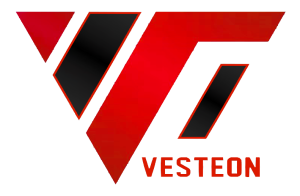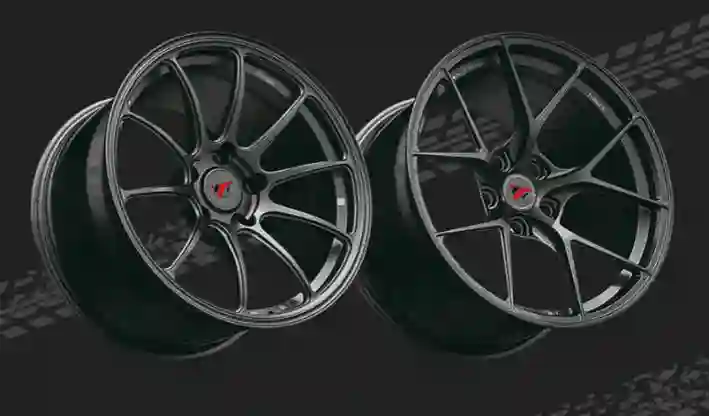With so many different car models around the world, choosing wheels has become quite an uphill task for many drivers. In this article, we look at the differences between stock wheels versus custom rims by drawing out their pros and cons and evaluating how they each affect your car’s performance and its appearance in general.
What Are OEM Wheels?
Differentiating OEM from after-sales wheels will allow choosing between the two, which wheels the car has to be fitted with. Wheels from an OEM are those the Original Equipment Manufacturer produces-manufactured by the same company producing the vehicle. They are designed to meet car manufacturer specifications to assure appropriate fit and the highest possible level of performance.
What Are the Pros and Cons of OEM Wheels Over Aftermarket Rims?
Choosing between OEM wheels and aftermarket rims involves several factors. Each option has its advantages and disadvantages that may affect your decision.
Pros of Using OEM Wheels
- CompatibilityOEM wheels are designed for your vehicle model and fit perfectly without modifications.
- Quality AssuranceThey follow strict quality control measures as set by the vehicle manufacturer for reliability.
- WarrantyIt is covered under the warranty of the vehicle hence no headache.
Resale Value The vehicles having OEM parts have a better resale value.
Cons of Using Aftermarket Rims
Possible Fitment Problems Aftermarket rims mightn’t fit well without modifications or adjustments.
- Inconsistent QualityQuality in the case of aftermarket rims differs since there are diverse manufacturers.
- Warranty IssuesUse of aftermarket rims could void certain sections of your car’s warranty.
- Resale Potential ImpactNon-factory parts might reduce the vehicle’s resale price.
What Is An Aftermarket Wheels?
Non-factory wheels are those wheels manufactured by firms that are not the vehicle’s original maker. These types of rims come in different styles, materials, and finishes for more variety, compared to what is available on the standard options from the car manufacturer.
What’s the difference between OEM Wheels and Aftermarket Rims?
Knowing the differences between these two types of wheels will help you in choosing wisely-one that fits both your needs and your personal tastes.
Material
OEM wheels are usually manufactured with high-quality materials since car manufacturers guarantee durability and strength. Aftermarket wheels, however, can be made with anything from aluminum alloys to composites of carbon fiber. The selected material may imply variations in both performance characteristics and cost.
Manufacturing Processes
Most of the manufacturing processes for the OEM wheels are standardized so that they meet the high quality set by the automotive manufacturers. For example, companies such as Vesteon make use of world-class manufacturing equipment together with ISO/TS quality management systems in ensuring that all their products have a consistent performance and safety.
On the other hand, aftermarket wheel manufacturers may adopt different approaches that may not necessarily be the same as those used in OEM manufacturing processes. While this allows for more creativity and innovation in design, it also results in a broad range of quality across different brands.
Design and Engineering Standards
OEM wheels are designed using specific design criteria as specified by the car manufacturer. These include load ratings, offset specifications, and aesthetic considerations to fit into the vehicle’s design language. Performance is ensured, with no compromise in safety or handling characteristics.
Aftermarket rims can give more latitude in terms of design but may not always follow the exact engineering specifications that OEM products follow. While this allows them to offer some exclusive customization options, which appeal to personal tastes, it may also lead to potential problems unless properly matched to the vehicle requirements.
By considering these aspects-material composition, manufacturing processes, and design standards-you can better evaluate whether OEM or aftermarket options align with your specific needs when choosing new wheels for your vehicle.
How Does the Strength of OEM Wheels Compare to Aftermarket Rims?
When comparing the strength of OEM wheels to that of aftermarket rims, several factors come into consideration. The strength of a wheel is determined by its ability to withstand loads, resist impacts, and maintain performance over time.
Load Capacity and Durability
OEM wheels are made with a certain load capacity specific to the particularities of a vehicle. This allows them to be sure that, through normal operation, the weight and stress applied to them will not affect their structure. Durability is often guaranteed because most OEM wheels are subjected to intensive testing processes, according to quality standards issued by the vehicle manufacturer.
Aftermarket wheels can differ in load carrying capacity depending on the manufacturer and materials used. Whereas some aftermarket wheels are designed and tested to meet or even exceed the standards of equipment manufacturers, other wheels could be less durable due to their design or poor quality of the material used.
Impact Resistance and Stress Testing
Impact resistance also is a factor to be considered when comparing the OEM wheels with their aftermarket rim counterparts. OEM wheels, for that matter, are stress-tested to withstand the various road conditions and impacts that the wheels might be exposed to without being affected by such conditions. This constitutes some of the strict quality controls in place put by the OEM manufacturers.
Conversely, wheels from the aftermarket are not as stringently tested unless the products are from trusted makers who make sure quality thresholds are met.
Long-term Performance and Wear
Long-term performance is a vital consideration for any wheel choice. OEM wheels are typically engineered for longevity, maintaining their structural integrity and appearance over time with minimal wear. This is due in part to their compatibility with the vehicle’s design and engineering standards.
The styling of your car with after-market rims gives different options. It is crucial to select the correct match, lest this be required to be frequently serviced or changed according to the conditions and needs of the vehicle, including the material makeup that can affect wear and tear.
Are There Certain Brands That Are Known for Stronger OEM Wheels?
Yes, there are brands which appear to make stronger OEM wheels, and mong them is Vesteon.
Vesteon: A Reliable Steel Wheel OEM
Shandong Vesteon Automotive Parts (Group) Co., Ltd specializes in the research, development, and sales of wheels, but with a key focus on the quality assurance of design and production. In 2005, Vesteon was established in Shandong province, China, with a facility area of more than 100,000 square meters and employing more than 700 workers. It boasts the most advanced manufacturing equipment. The company adheres strictly to the ISO/TS quality management system in order to ensure its products meet the standards required globally.
This means Vesteon puts a lot of effort into quality control, as seen in their use of impact resistance testers and dynamic radial load endurance testers. Their products have passed through some difficult assessments, such as American SFI certification, German TUV certification, and Japanese VIA certification, which demonstrates their commitment to quality manufacturing.
Conclusion
When comparing the advantages and disadvantages of OEM wheels against aftermarket rims, one needs to consider the weight capacity, durability, resistance to impacts over time, and brand reputation. Vesteon and other companies show that certain aftermarket producers can provide options by keeping high standards of quality.
Frequently Asked Questions About OEM Wheels vs. Aftermarket Rims
Are OEM wheels more expensive than aftermarket rims?
OEM wheels are often very expensive to produce, as they have to meet very specific design criteria and stringent quality specifications set by vehicle manufacturers. Fortunately, this cost usually reflects the fitment and reliability.
Can custom rims void my vehicle’s warranty?
Yes! Using custom wheels might void parts of your car’s warranty if they don’t meet manufacturer specs or cause damage due to poor installation.
Are OEM wheels more fuel-efficient as compared to after-market rims?
Manufacturers originally design the shape and weight of OEM wheels, considering ideal aerodynamics and overall weight factors, keeping in view the very model they are going to complement. This could really work toward positive fuel efficiency as opposed to those aftermarket alternatives that do not prioritize such design issues.


